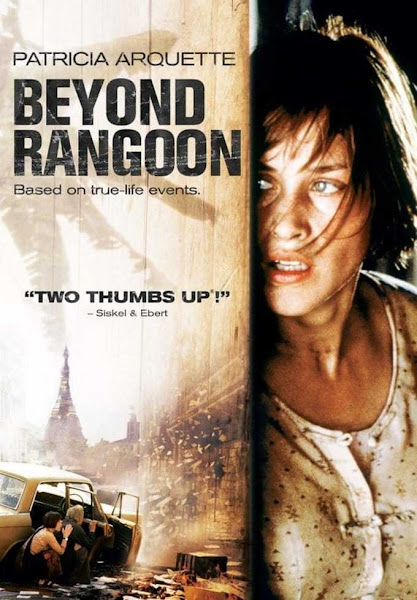When I lived and worked in Burma in 1975, the Burmese people still wore their traditional longyi even as their neighbours had abandoned their saris and sarongs for Levis and miniskirts. Burma's holy men were still more revered than its rich or its famous, and in the countryside, where rice paddies were still farmed using water buffalos, it might have been the 16th century as easily as the 20th. No country left a more indelible impression on me than Burma with its 'Bama hsan-jin', the quiet, modest and cultural quality of 'Burmese-ness' which I will always remember.
I've been trying to find a copy of John Boorman's movie "Beyond Rangoon", which dramatised the 1988 pro-democracy uprising and its brutal suppression, but I couldn't find a copy on ebay in Australia. The only DVDs I could find were from the United States of America, priced at a hefty forty US dollars or more, plus a similar amount in postage.
What I did find on YouTube was the full-length copy of "The Burmese Harp", a 1956 film by Japanese director Kon Ichikawa, based on a novel by Michio Takeyama. It follows the story of a Japanese soldier after his unit surrenders at the end of the Second World War. Traversing Burma, he comes in contact with the toll of war as he has a spiritual revelation about Buddhism. A staunchly anti-war movie, it is also an important work about the power of the Buddhist faith and pacifism.
And then there is the "Burma Storybook", a 2017 documentary which takes a cinematic trip across Burma to see the country through its people's eyes and poetry. Poetry has always been a source of hope and resiliency for the Burmese people, helping them to survive the military dictatorship’s total control over the country. The documentary centres around the 70-year-old activist and writer Maung Aung Pwint, as he navigates life after his imprisonment and the long-awaited return of his son returning home after two decades of political exile.
How I regret not having stayed longer in this beautiful country. You never know the value of a moment until it becomes a memory.





